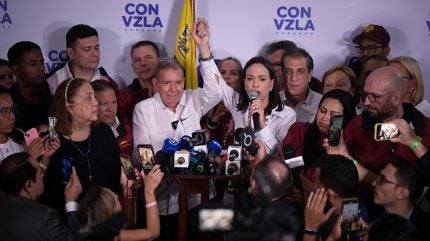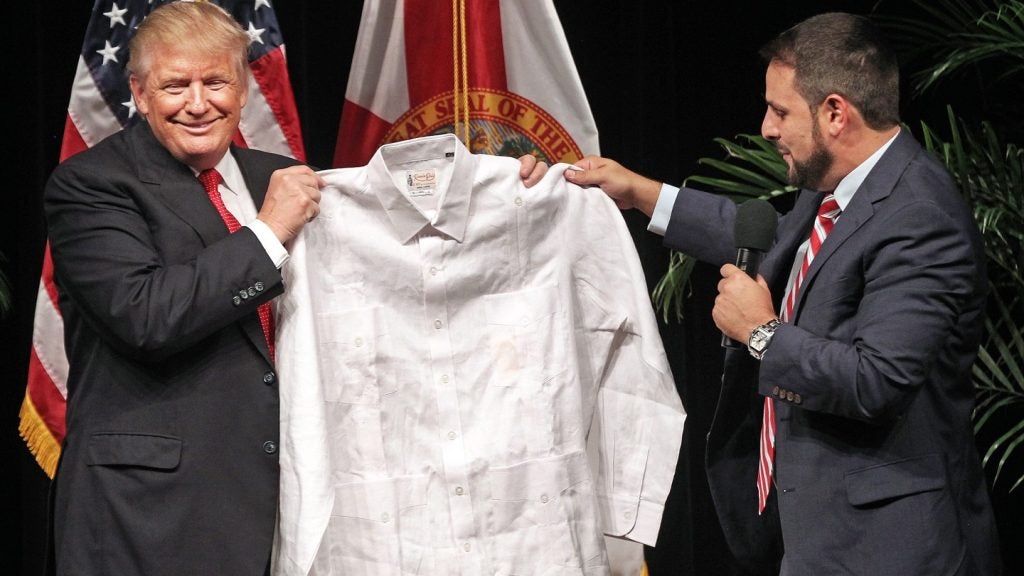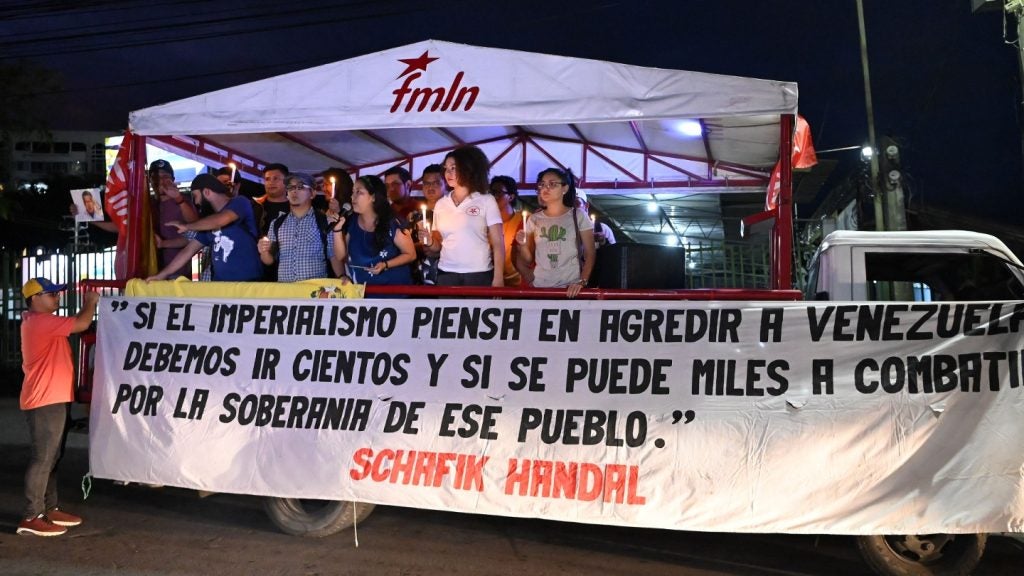
More than a week has passed since President Nicolás Maduro claimed victory in Venezuela’s elections despite overwhelming evidence that former ambassador Edmundo González won – and protests look set to continue despite a crackdown by Venezuela’s police, military and intelligence agencies.
Dozens of countries have condemned Maduro, instead throwing their support behind the opposition alliance led by banned leader María Corina Machado and her chosen successor González.
Following US Secretary of State Antony Blinken’s statement that the US believes González won, attention has focused squarely on how Washington will pressure Maduro into releasing electoral data from 28 July.
Speaking to Investment Monitor, Carlos Trujillo, former ambassador to the Organization of American States (OAS) during the Trump administration, discussed the economic ramifications for Venezuela, Maduro’s mobilisation of the military and intelligence agencies and digital repression of the Venezuelan people.
Should Nicolás Maduro hold on to power in Venezuela, how will it affect the country’s economy and its relationship with the US?
Carlos Trujillo: Well, I can’t speak for the Biden administration, but under the Trump administration, given his strong statements and the policy he took on for four years, I would expect President Trump to snap back all the sanctions that were imposed from 2017 to 2021 and continue to put economic pressure on Maduro as a legitimate government.
What do you think the international community’s response should be to reports that Maduro has mobilised Venezuela’s Military Counterintelligence Unit?
I think the international community has to consider putting economic pressure on the regime and on the regime members, and really go after a lot of their ill-gotten gains. A lot of these regime members are known to frequent Europe, or else they’re known to frequent other parts of the world.
I think it’s incumbent upon the international community to really put economic pressure on them and their families, as well as continue to put economic pressure on the regime and those who do business with the regime.

How effective, in your opinion, has the response of the Biden administration been?
I applaud them for recognising the outcome of the election, but I think we have to focus on how we ended up in this place. The Biden administration took the policy position of eliminating sanctions prior to the conditions for a free and fair election being met, even when María Corina Machado was improperly disqualified from participating in the election, the Biden administration did not reimpose any of the sanctions.** I think we really have to focus on the process of how we ended up here.
I applaud them for obviously recognising the rightful leader, the winner of the election, but really, I think they will be judged by what they do over the coming days, weeks and months, and whether they’re willing to continue to apply the same maximum pressure campaign that President Trump orchestrated and fathered during his administration.
**[Biden reimposed sanctions on the Venezuelan oil sector after negotiations for free and fair elections fell through in April.]
Maduro had promised this time around that the elections would be “free and fair” following the similarly contested election of 2019. What’s different this time, and how should it be handled differently?
I think what’s very, very apparent is that Maduro assumed the presidency then based on a vacancy, right, a vacancy that elections weren’t called. And since elections weren’t called, the National Assembly, in the line of succession, was a rightful heir to the presidency.**
The difference today is that elections took place and the opposition overwhelmingly won. Most polls say, two to one. At this point, there’s no doubt of not only the legitimacy of the results, but also who’s the rightful leader of the country.
Maduro has not won an election at this point in over 10 years, right? I think dating back maybe even longer than that, they stole the last one. There’s no semblance of legitimacy left for Maduro period. He hasn’t won an election. They haven’t called elections. When they finally call elections, he obviously is unsuccessful.
I think the international community has no choice but to recognise the rightful democratic outcome, which was María Corina Machado winning the elections.
**[The opposition disputed the legitimacy of the 2018 election, which saw Maduro’s reelection. They claimed that since the process had been fraudulent, Maduro was not the legitimate president. The Venezuelan constitution says that if there is a vacancy in the presidency, the leader of the National Assembly becomes interim president until elections can be called. This led to the recognition of Juan Guaido, the leader of the National Assembly at the time, as interim president by 57 countries.]
Are there any fears in your mind that Maduro would use the police, military or secret service to arrest Machado and González?
That’s their playbook. Their playbook is to use the SEBIN [Venezuelan intelligence agency], use the colectivos [informal, government-backed armed gangs], use all their non-traditional criminal groups to start harassing, intimidating, kidnapping and eliminating the opposition. They can’t beat them in the ballot box, so they’re only going beat them with their bullets.
Footage has emerged of Maduro calling WhatsApp digital imperialism and ordering it to be banned. How has the Maduro regime already repressed free speech and online protest?
Well, with their Chinese, Iranian, Cuban-run bots, right? They discredit opposition leaders, they find negative stories about opposition leaders, they shut down their communications. They attack their friends and family. That’s their digital campaign. They’ve been running those plays for a very long time.
Is there significance in the criticism that has come from some of Latin America’s leftist leaders? Does criticism from the likes of President Lula in Brazil show that this is the most serious count of election fraud by Maduro?
Yeah. If you look at the majority of these people, most of them are democratic, they assume power by democratic means. They leave power through democratic processes. None of them are totalitarian. You hope at least that they’re not totalitarian.
Maduro is no longer a leftist, he’s a totalitarian dictator. And I hope that even the Latin left recognises the difference between believing in a more social policy than eliminating democracy outright. Maduro is now in the camp of just the elimination of democracy altogether. I don’t think anyone, regardless of centre-left or centre-right, should promulgate that point of view.

Has the low-key and subtle response from the Biden administration been justified to avoid fuelling the fire given Maduro’s criticism of US imperialism?
No, I don’t think it’s justified. I think Maduro, regardless of what [the Biden administration] did, even if they recognised the outcomes, was going to claim an imperial intervention.
Obviously, he didn’t win the election, and he lost by such a large margin that they couldn’t even stuff enough ballots in order to make them viable. The second he didn’t, he cancelled all the international observers. He cancelled every single credible group that was trying to go down there to see the election, and, ultimately, the Carter Center’s report was very damaging as to what really occurred.
But the reality is, it had nothing to do with Biden or any international actors. It was a mass rejection by the Venezuelan people of the current situation and totalitarian dictatorships are living under.
Assuming Maduro does not release the electoral data, how does this situation play out without any sort of foreign intervention?
Well, it depends on what the international community wants to do, right? Do they want to just stand idly and allow people to destroy democracies and to be totalitarian and oppress their people? Or do they want to be proactive in their approach of dealing with that?
I think it’ll be a real test for the international community, all the fans of never-ending dialogues. You had this never-ending dialogue that created a process that led to the complete illegitimacy of Maduro. What’s your next step, right? How do they plan to handle a process that they created, that they owned, that they championed, that led to, not only a completely legitimate election, but ultimately, unfortunately, I think it’ll lead to a lot of violence and repression towards opposition leaders and supporters.
Should President Trump be successful in his US Presidential campaign are you planning to return to the role of OAS ambassador?
No, I’ve supported President Trump since 2016 and I’m happy to support him in any capacity. We just need to focus on President Trump winning in November.







